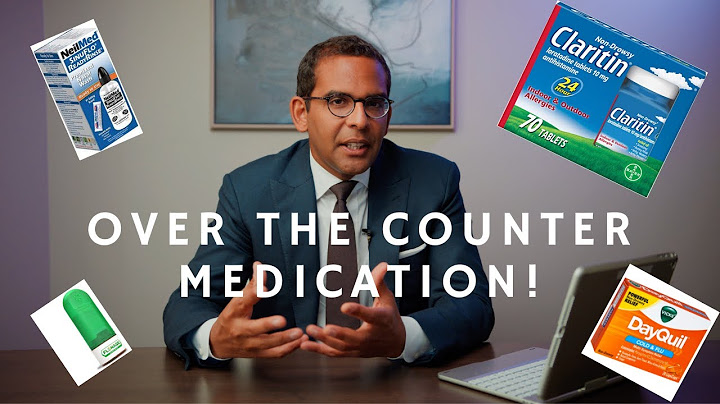<< Back Show  March 14, 2020 Eyes watering? Runny nose? Feel like your head is locked in an ever-tighter vice? Sounds like the start of seasonal allergies, maybe a cold or flu . . . but not COVID-19. To keep anxiety levels down, and reduce the crush on local healthcare during the coronavirus pandemic, it's important to know the difference between seasonal allergies or other illness and the more serious COVID-19. "This novel coronavirus causes a respiratory illness manifested by fever, cough and difficulty breathing," said Dr. Virginia Bieluch, the chief of infectious diseases at The Hospital of Central Connecticut in New Britain. Pay particular attention to that combination of three symptoms. Less frequently, says the World Health Organization, a COVID-19 infection can produce symptoms similar to the flu like aches and pains, sore throat, runny nose, nasal congestion or diarrhea.  Common ColdSneezing, stuffy and runny nose? You might have a cold. Colds are one of the most frequent reasons for missed school and work. Every year, adults have an average of 2 to 3 colds, and children have even more. Antibiotics do not work against viruses that cause colds and will not help you feel better. CausesMore than 200 viruses can cause a cold, but rhinoviruses are the most common type. Viruses that cause colds can spread from person to person through the air and close personal contact. Risk FactorsMany factors can increase your risk of catching a cold, including:
SymptomsSymptoms of a cold usually peak within 2 to 3 days and can include:
When viruses that cause colds first infect the nose and sinuses, the nose makes clear mucus. This helps wash the viruses from the nose and sinuses. After 2 or 3 days, mucus may change to a white, yellow, or green color. This is normal and does not mean you need an antibiotic. Some symptoms, especially runny or stuffy nose and cough, can last for up to 10 to 14 days. Those symptoms should improve over time. When to Seek Medical CareSee a doctor if you have:
This list is not all-inclusive. Please see a doctor for any symptom that is severe or concerning. Colds can have similar symptoms to flu. It can be difficult (or even impossible) to tell the difference between them based on symptoms alone. Learn more about differences between cold and flu.  When you have a cold, mucus fills your nose and could cause post-nasal drip, headache, and a sore throat. How Long Will Symptoms Last with a Typical Cold? When you have a cold:
baby icon Talk to a healthcare professional right away if your child is under 3 months old with a fever of 100.4 °F (38 °C) or higher. TreatmentYour doctor can determine if you have a cold by asking about symptoms and examining you. Your doctor may also need to order laboratory tests. There is no cure for a cold. It will get better on its own—without antibiotics. Antibiotics won’t help you get better if you have a cold. When antibiotics aren’t needed, they won’t help you, and their side effects could still cause harm. Side effects can range from mild reactions, like a rash, to more serious health problems. These problems can include severe allergic reactions, antibiotic-resistant infections and C. diff infection. C. diff causes diarrhea that can lead to severe colon damage and death. How to Feel BetterBelow are some ways you can feel better while your body fights off a cold:
Ask your doctor or pharmacist about over-the-counter medicines that can help you feel better. Always use over-the-counter medicines as directed. Remember, over-the-counter medicines may provide temporary relief of symptoms, but they will not cure your illness. Over-the-Counter Medicine and ChildrenCarefully read and follow instructions on over-the-counter medicine product labels before giving medicines to children. Some over-the-counter medicines are not recommended for children of certain ages.
Ask your doctor or pharmacist about the right dosage of over-the-counter medicines for your child’s age and size. Also, tell your child’s doctor and pharmacist about all prescription and over-the-counter medicines they are taking. PreventionYou can help prevent colds by doing your best to stay healthy and keep others healthy, including:
What does it mean when I have a sore throat and a stuffy nose?Common causes
A sore throat is often a symptom of: colds or flu – you may also have a blocked or runny nose, a cough, a high temperature (fever), a headache and general aches. laryngitis (inflammation of the voice box) – you may also have a hoarse voice, a dry cough and a constant need to clear your throat.
Does Covid start with a sore throat?Yes, one of the possible symptoms of COVID-19 is a sore throat. Other common symptoms include fever, dry cough, difficulty breathing, fatigue, headache and sudden loss of taste or smell.
Can a sore throat and stuffy nose be Covid?Both COVID-19 and the common cold are caused by viruses. COVID-19 is caused by SARS-CoV-2, while the common cold is most often caused by rhinoviruses.
...
Symptom check: Is it COVID-19 or a cold?. What to do if u have a sore throat and a stuffy nose?Take charge with simple do-it-yourself treatments that clear up your stuffy nose and soothe your scratchy throat.. No. 1: Drink Up! Get plenty of fluids. ... . No. 2: Make It Steamy! You can loosen up your stuffy nose if you breathe in some steam. ... . No. 3: Blow Your Nose. It's better than sniffling mucus back into your head.. |

Related Posts
Advertising
LATEST NEWS
Advertising
Populer
Advertising
About

Copyright © 2024 boxhoidap Inc.















